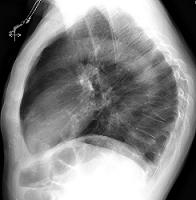 One of the things I dread the most as a heart surgeon is… calcium. Yes, severely calcified valves and arteries are probably my worst nightmare. To remove the calcium, we have to use surgical instruments such as the “bone eater” – and even with that you struggle a lot! Eventually the instruments end up losing their sharp cutting edge. It is like cutting a rock, I kid you not. Tissues that should be smooth and silky are calcified and have the consistency of a rock or a bone. It has gotten worse over the years and there could be other factors involved as well, but magnesium is one of those things that is absolutely essential -and usually it shines by its absence in most therapies!
One of the things I dread the most as a heart surgeon is… calcium. Yes, severely calcified valves and arteries are probably my worst nightmare. To remove the calcium, we have to use surgical instruments such as the “bone eater” – and even with that you struggle a lot! Eventually the instruments end up losing their sharp cutting edge. It is like cutting a rock, I kid you not. Tissues that should be smooth and silky are calcified and have the consistency of a rock or a bone. It has gotten worse over the years and there could be other factors involved as well, but magnesium is one of those things that is absolutely essential -and usually it shines by its absence in most therapies!
Magnesium helps to dissolve calcium; it becomes more water soluble. So with foods artificially enriched with calcium, and the boom of calcium supplementation, there is never enough magnesium. Already in 1936 in the US Senate, there were discussions about dangerous diet deficiencies due to mineral depleted soils. Foods raised on millions of acres of land no longer contain enough of certain minerals, no matter how much of them you eat (and this was in the 1930’s!). So usually there is always a constant deficiency in magnesium in most populations.
If you don’t have enough magnesium to help keep calcium dissolved, you end up with calcium-excess spasms, calcification of arteries, calcium deposits, kidney stones, spasms of your blood vessels (which can lead to heart attacks and angina), migraine headaches, broncospasm (asthma), arrhythmias, etc. Magnesium deficiencies are also seen in depression and anxieties!
Magnesium is involved in over 325 enzymatic reactions in the body that regulate metabolism, energy production, electrical currents, etc. Even people who try to detoxify can’t really do it if they’re low in magnesium because it is involved in crucial enzymatic reactions that helps the body to detoxify. All chronic diseases involve inflammation and where there is inflammation you can be certain that there is a magnesium deficiency. Magnesium has also been used successfully as a pain reliever when used transdermally.
Calcium supplementation is not bad as long as one takes enough magnesium supplementation and even magnesium baths along with it. I personally can attest to the great benefits of transdermal magnesium therapy (magnesium baths), it is the greatest relaxer mineral on earth.
Other than a mineral imbalance that leads to calcium excess and inflammation, we have certain bacteria which can also cause calcification in heart disease. Here I’m talking about Chlamydia pneumoniae and Mycoplasma pneumoniae in calcified nodes of blood vessels throughout the body, including the heart and the aorta.
There are usually multiple factors involved, but I wanted to bring attention here to the subject of magnesium which is quite frequently overlooked.
A good book that puts things into perspective is The Magnesium Miracle by Carolyn Dean, MD, ND and Magnesium Medicine by Mark Sircus, AC, OMD.
Diet, supplementation, magnesium baths and a far infrared sauna can keep the surgeons away!
Further reading:
Chlamydia pneumoniae involved in both heart disease and infertility [link]
Can Degenerative Aortic Valve Stenosis Be Related to Persistent Chlamydia pneumoniae Infection? [link]
Detoxify or Die by Sherry Rogers.
ShareMAR



About the Author:
A countryside family medicine doctor and former heart surgeon in service of the Hippocratic Oath.